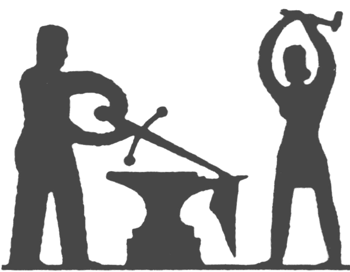Final Kings Bay Plowshares activist sentenced to 21 months in prison
Mark Colville, one of the Kings Bay Plowshares 7 anti-nuclear activists, was sentenced April 9 to 21 months in federal prison for conspiracy, destruction of property on a naval installation, depredation of government property and trespassing.
Mark Colville, the last of the seven Kings Bay Plowshares anti-nuclear activists to be sentenced, was sentenced April 9 to 21 months in prison by Judge Lisa Godbey Wood of the U.S. District Court for the Southern District of Georgia. Colville and his fellow Catholic activists were convicted in October 2019 of conspiracy, destruction of property on a naval installation, depredation of government property, and trespassing.
Along with the six others who participated in the Kings Bay Plowshares action on the night of April 4, 2018, breaking onto a U.S. Navy submarine base to protest the country’s stockpiling of nuclear weapons, Colville was also sentenced to pay over $33,000 in restitution to the U.S. government for damages incurred.
Colville objected to paying any restitution on the grounds that doing so would betray his religious beliefs, violating the Religious Freedom Restoration Act. He noted to the judge that he would be willing to perform a period of community service in lieu of restitution, but she ultimately overruled his objection.
In addition to the nine-inch stack of letters the judge said she received and reviewed in support of Colville’s case, some on behalf of all seven Plowshares activists and some about Colville specifically, the defense called one witness, Stephen Kobasa, to give a statement about Colville’s character.
Kobasa spoke in support of the Plowshares action, and praised the strength of Colville’s conviction. It makes sense to call a character witness when something about a defendant’s character is unclear, but nothing at all is unclear about Colville, Kobasa said.
“Mark Colville doesn’t need me here,” Kobasa testified. “His consistency, his passion, his fierce commitment to hope are completely apparent to anyone who has encountered him.”
Colville himself read a written statement before his sentence was delivered, saying what he grieved most about the trial was not any sentence that would be handed down, but the complicity of the court in the country’s stockpiling of nuclear weapons and the theft of resources from communities to fund weapons programs.
“What I have to say today is simple: My family, my neighborhood and I have a right to live without a nuclear gun on hair-trigger alert held perpetually to our heads,” he said.
“This hearing today is itself irrelevant,” Colville said. “The court has already pronounced a sentence on me, on my family, and on my neighborhood. We are hereby condemned to live as members of a rogue state, which, in the face of a global consensus that outlaws nuclear weapons, has budgeted what amounts to $100,000 per minute over the next 10 years to upgrade its stockpile of these useless, poisonous idols.”
Colville concluded with a prayer for the Earth from Pope Francis’ encyclical “Laudato Si’, on Care for our Common Home”: “Encourage us, we pray, in our struggle for justice, love and peace. Amen,” he prayed.
Godbey Wood also acknowledged Colville’s dedication to helping the poor during the hearing — Colville co-founded the Amistad Catholic Worker House in New Haven, Connecticut, with his wife — though the judge called his criminal history “troubling.” Colville has eight criminal convictions related to trespassing and destruction of government property. She also said she was not sure Colville would give up his “destructive” actions upon his release.
Colville appeared for the sentencing via teleconference from New Haven and requested to be sent to the federal prison in Danbury, Connecticut, near the home he shares with his family.
